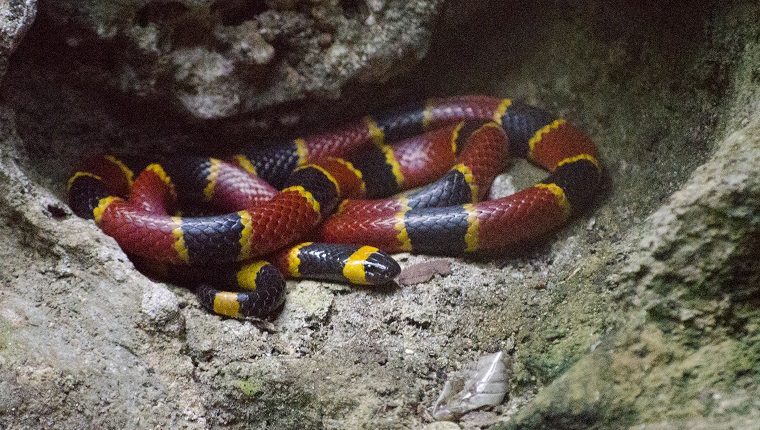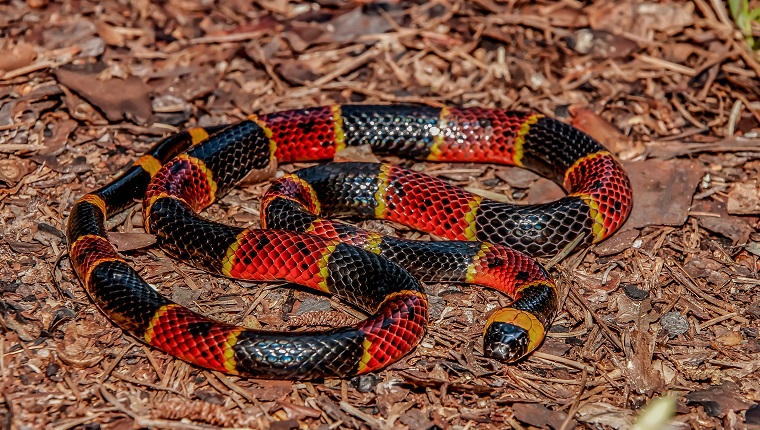Coral snake bite poisoning in dogs happens when a dog is bitten by the venomous, tricolored coral snake. While coral snakes are reclusive creatures, their bites can result in paralysis and breathing problems in dogs and become life threatening.
In general, if your dog has been bitten by a snake, seek out medical attention straight away.
If you see signs that your dog is developing the symptoms of poisoning, consult your veterinarian immediately. Here’s what you should know about the symptoms, causes, and treatments of coral snake bite poisoning in dogs.
Symptoms Of Coral Snake Bite Poisoning In Dogs
Coral snake bite poisoning in dogs can produce a range of symptoms. These symptoms can also be delayed for up to 18 hours after a dog is bitten.
Some of the most common symptoms include:
Causes Of Coral Snake Bite Poisoning In Dogs

The cause of coral snake bite poisoning in dogs is the venomous bite of the coral snake. While coral snakes are reclusive creatures, curious dogs might disturb them and end up being bitten.
You can identify coral snakes by their yellow, red, and black band markings.
Veterinary Treatments
If you suspect that your dog has been bitten by a coral snake, seek out medical attention immediately. Your vet will want to ask about your dog’s recent activities and medical history and attempt to rule out any other issues that might be causing similar symptoms.
If you actually see a snake near your dog, take a photo with your phone so that your vet can accurately identify the type of snake.
Treatment involves a stay in hospital. The vet will administer antivenom medication to your dog. In some cases, vets might also prescribe antibiotics to fight off any potential infections.
As ever, if your vet prescribes your dog any medicine, it’s imperative that you stick to the correct dosage and frequency instructions and complete the full course of medication.
While your dog recovers at home, it’s important that you provide them with a calm, quiet, and relaxing environment to help their journey back to health.
Has your dog ever been bitten by a coral snake or any other type of snake? What steps did your vet take to help your dog recover? Tell us all about it in the comments below.




